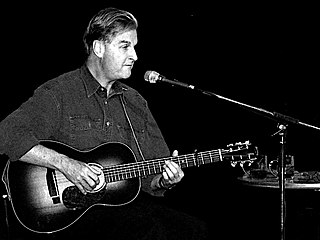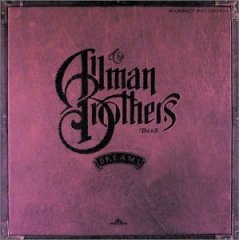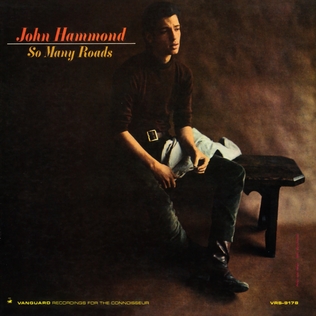
Blind Willie McTell was an American Piedmont blues and ragtime singer and guitarist. He played with a fluid, syncopated fingerstyle guitar technique, common among many exponents of Piedmont blues. Unlike his contemporaries, he came to use twelve-string guitars exclusively. McTell was also an adept slide guitarist, unusual among ragtime bluesmen. His vocal style, a smooth and often laid-back tenor, differed greatly from the harsher voices of many Delta bluesmen such as Charley Patton. McTell performed in various musical styles, including blues, ragtime, religious music, and hokum.

A jug band is a band employing a jug player and a mix of conventional and homemade instruments. These homemade instruments are ordinary objects adapted to or modified for making sound, like the washtub bass, washboard, spoons, bones, stovepipe, jew's harp, and comb and tissue paper. The term 'jug band' is loosely used in referring to ensembles that also incorporate homemade instruments, but that are more accurately called skiffle bands, spasm bands, or juke bands because they do not include a jug player.

Blind Willie Johnson was an American gospel blues singer and guitarist. His landmark recordings completed between 1927 and 1930—thirty songs in total—display a combination of powerful "chest voice" singing, slide guitar skills, and originality that has influenced generations of musicians. Even though Johnson's records sold well, as a street performer and preacher, he had little wealth in his lifetime. His life was poorly documented, but over time, music historians such as Samuel Charters have uncovered more about Johnson and his five recording sessions.

Maria Muldaur is an American folk and blues singer who was part of the American folk music revival in the early 1960s. She recorded the 1973 hit song "Midnight at the Oasis" and has recorded albums in the folk, blues, early jazz, gospel, country, and R&B traditions.

Geoff Muldaur is an American active singer, guitarist and composer, who was a founding member of the Jim Kweskin Jug Band and a member of Paul Butterfield's Better Days.

Dreams is a compilation album by the Allman Brothers Band. Packaged as a box set of four CDs or six LPs, it was released on June 20, 1989.

Live at the Atlanta International Pop Festival: July 3 & 5, 1970 is a two-CD live album by the Allman Brothers Band. It features their two performances at the 1970 Atlanta International Pop Festival, at the Middle Georgia Raceway in Byron, Georgia. It was released in 2003.

The Real Thing is a double live album by Taj Mahal, released in 1971. It was recorded on February 13, 1971, at the Fillmore East in New York City and features Taj Mahal backed by a band that includes four tuba players.
Amos Garrett is an American-Canadian blues and blues-rock musician, guitarist, singer, composer, and musical arranger. He has written instructional books about music and guitar. Garrett holds dual citizenship and was raised in Toronto and Montreal. He is best known for his guitar solos on Maria Muldaur's recording "Midnight at the Oasis", and on Paul Butterfield's Better Days recording of "Please Send Me Someone to Love." He has written books about music, such as "Amos Garrett—Stringbending: A Master Class".

Jim Kweskin is an American folk, jazz, and blues musician, most notable as the founder of the Jim Kweskin jug band, also known as Jim Kweskin and the Jug Band, with Fritz Richmond, Geoff Muldaur, Bob Siggins and Bruno Wolfe. The Jug Band was a significant part of the folk and blues revival of the 1960s. Maria Muldaur, formerly with the Even Dozen Jug Band, joined the band in 1963. During the five years they were together, the Jug Band successfully modernized the sounds of pre–World War II rural music.
Eden and John's East River String Band are an American, New York City-based duo, who play country blues from the 1920s and 1930s. The members are John Heneghan and Eden Brower. The duo often have other musicians sit in with them, including Dom Flemons, Pat Conte and Robert Crumb.

"It's Nobody's Fault but Mine" or "Nobody's Fault but Mine" is a song first recorded by gospel blues artist Blind Willie Johnson in 1927. It is a solo performance with Johnson singing and playing slide guitar. The song has been interpreted and recorded by numerous musicians in a variety of styles, including Led Zeppelin on their 1976 album Presence.

"Dark Was the Night, Cold Was the Ground" is a gospel blues song written and performed by American musician Blind Willie Johnson and recorded in 1927. The song is primarily an instrumental featuring Johnson's self-taught bottleneck slide guitar and picking style accompanied by his vocalizations of humming and moaning. It has the distinction of being one of 27 samples of music included on the Voyager Golden Record, launched into space in 1977 to represent the diversity of life on Earth. The song has been highly praised and covered by numerous musicians and is featured on the soundtracks of several films.

The Lucky Ones was the title of both the fourth and fifth albums released by Canadian singer-songwriter Willie P. Bennett, his only releases in the 1980s. Though the albums share the same title, they are completely different recordings, and mostly of different compositions. The two albums have only three compositions in common: "The Lucky Ones", "Reckless Baby" and "Patience of a Working Man".
Tom Principato is an American electric blues and blues rock singer, guitarist, and songwriter.

The Soul of a Man is an album of "twenty haunting spiritual blues songs" recorded in the late 1920s and 1930 by the American gospel blues singer and guitarist Blind Willie Johnson that was released by Charly Records in 2003.

"Let Your Light Shine on Me" is a traditional gospel blues song, having been recorded by The Wiseman Quartet in 1923, by Ernest Phipps in 1928, and by Blind Willie Johnson in 1929. The song itself is also known as "Shine On Me", "Let It Shine on Me", "Light from the Lighthouse" and "Light from Your Lighthouse".
"Trouble Will Soon Be Over" is a traditional gospel blues song recorded in 1929 by Blind Willie Johnson and Willis B. Harris, who is thought to have been his first wife.

The Complete Blind Willie Johnson is a compilation album of all the known recordings by American gospel blues singer-guitarist Blind Willie Johnson. As part of the Roots N' Blues series, it was released jointly by Columbia Records and Legacy Recordings, on April 27, 1993. All of the tracks on the two-compact disc set were originally issued by Columbia on the then-standard two-sided 78 rpm record format.

So Many Roads is a 1965 studio album by John P. Hammond, backed by several musicians who would go on to form The Band.
















